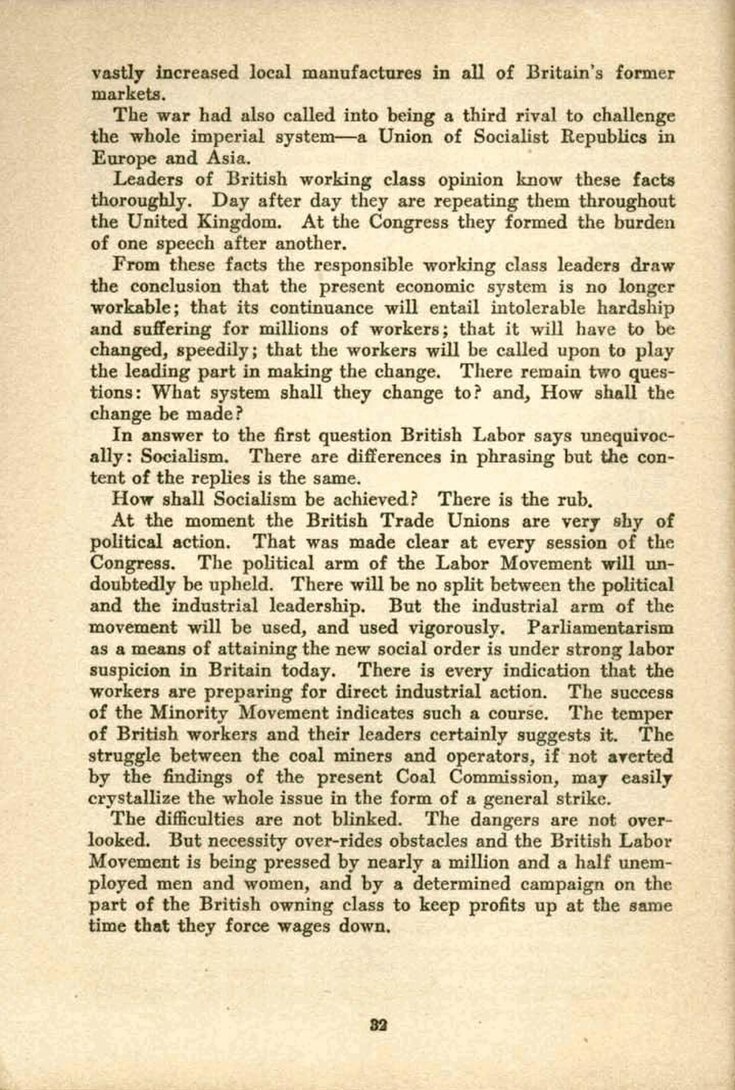vastly increased local manufactures in all of Britain's former markets.
The war had also called into being a third rival to challenge the whole imperial system—a Union of Socialist Republics in Europe and Asia.
Leaders of British working class opinion know these facts thoroughly. Day after day they are repeating them throughout the United Kingdom. At the Congress they formed the burden of one speech after another.
From these facts the responsible working class leaders draw the conclusion that the present economic system is no longer workable; that its continuance will entail intolerable hardship and suffering for millions of workers; that it will have to be changed, speedily; that the workers will be called upon to play the leading part in making the change. There remain two questions: What system shall they change to? and, How shall the change be made?
In answer to the first question British Labor says unequivocally: Socialism. There are differences in phrasing but the content of the replies is the same.
How shall Socialism be achieved? There is the rub.
At the moment the British Trade Unions are very shy of political action. That was made clear at every session of the Congress. The political arm of the Labor Movement will undoubtedly be upheld. There will be no split between the political and the industrial leadership. But the industrial arm of the movement will be used, and used vigorously. Parliamentarism as a means of attaining the new social order is under strong labor suspicion in Britain today. There is every indication that the workers are preparing for direct industrial action. The success of the Minority Movement indicates such a course. The temper of British workers and their leaders certainly suggests it. The struggle between the coal miners and operators, if not averted by the findings of the present Coal Commission, may easily crystallize the whole issue in the form of a general strike.
The difficulties are not blinked. The dangers are not over-looked. But necessity over-rides obstacles and the British Labor Movement is being pressed by nearly a million and a half unemployed men and women, and by a determined campaign on the part of the British owning class to keep profits up at the same time that they force wages down.
32
